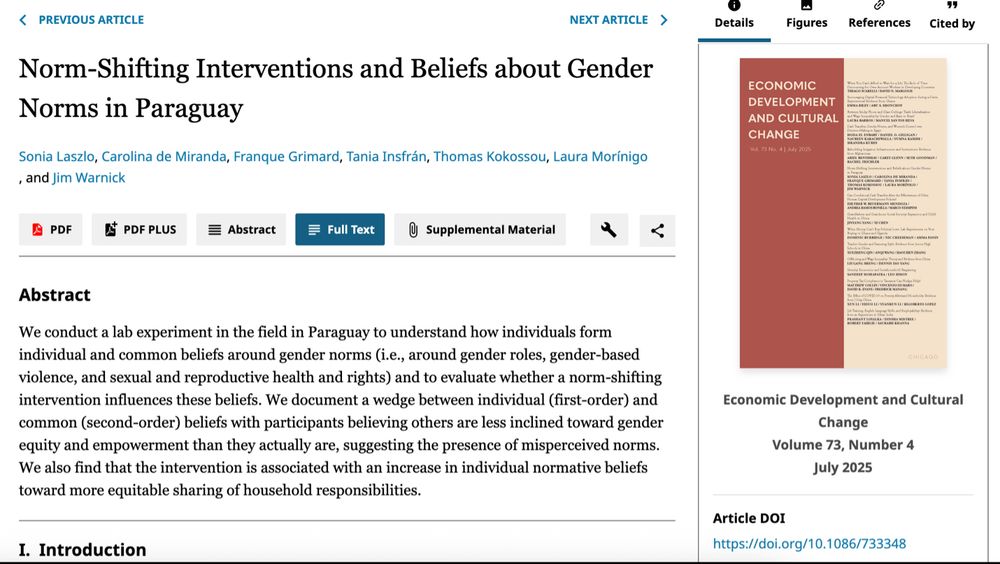Sonia Laszlo 🇨🇦
@slaszlo.bsky.social
1.5K followers
1.3K following
69 posts
Professor of Economics at McGill University. Research interests: development, labour, health and gender. Chionophile and coffee enthusiast. Proud purchaser of bagged - not canned - milk.
https://sites.google.com/site/sonialaszlo/home
Posts
Media
Videos
Starter Packs
Reposted by Sonia Laszlo 🇨🇦
Sonia Laszlo 🇨🇦
@slaszlo.bsky.social
· Sep 7
Reposted by Sonia Laszlo 🇨🇦
Sonia Laszlo 🇨🇦
@slaszlo.bsky.social
· Sep 3
Sonia Laszlo 🇨🇦
@slaszlo.bsky.social
· Sep 3
Sonia Laszlo 🇨🇦
@slaszlo.bsky.social
· Sep 3
Sonia Laszlo 🇨🇦
@slaszlo.bsky.social
· Sep 3
Sonia Laszlo 🇨🇦
@slaszlo.bsky.social
· Sep 3
Sonia Laszlo 🇨🇦
@slaszlo.bsky.social
· Sep 3
Reposted by Sonia Laszlo 🇨🇦
Shelley Clark
@shelleydclark.bsky.social
· Jul 29

Fears that falling birth rates in US could lead to population collapse are based on faulty assumptions
While the changes in population structure that accompany low birth rates are real, the impact of these changes has been dramatically overstated.
theconversation.com
Sonia Laszlo 🇨🇦
@slaszlo.bsky.social
· Jun 26
Sonia Laszlo 🇨🇦
@slaszlo.bsky.social
· Jun 12
Reposted by Sonia Laszlo 🇨🇦
VoxDev
@voxdev.bsky.social
· Jun 6

Can talking about girls’ education improve educational outcomes?
Evidence from Zimbabwe suggests that dialogue-based engagement campaigns can be effective in increasing enrolment and learning, which is consistent with improving perceptions around the value of girls...
voxdev.org
Sonia Laszlo 🇨🇦
@slaszlo.bsky.social
· Apr 29
Sonia Laszlo 🇨🇦
@slaszlo.bsky.social
· Apr 29













